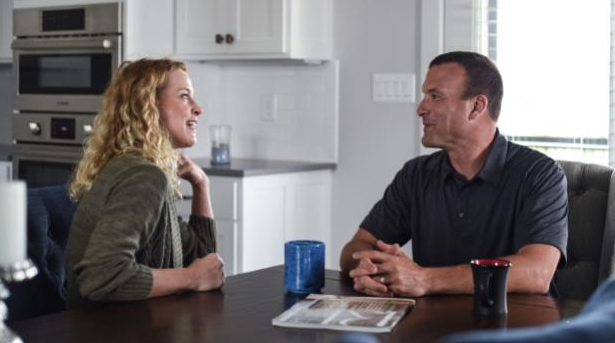What You Need to Know About Home Improvement Scams

As do-it-yourself home improvement projects become more popular, it is increasingly important that a thorough inspection is completed before a home is purchased. HomeTeam Inspection Service shares everything you need to know.
With a strong surge in real estate investing in recent years, the number of home flips on the market is growing, and it is important that buyers are aware of the steps that should be taken when purchasing a recently renovated home. A home inspection is important with any purchase, but it is especially important in the case of a home that may have been worked on independently.
“We’re not thinking of scams in terms of a contractor taking a down payment and disappearing; what we’re worried about is someone who doesn’t do a very good job on their home improvement projects, specifically because they’re flipping the house and assuming no one will notice as long as everything looks nice on the outside,” said Adam Long, president of HomeTeam Inspection Service. “There are things that will stand out to a home inspector that the average buyer would not notice until they’ve lived in the home for a while.”
Some home flippers will either attempt to complete renovations on their own or hire a subcontractor to complete the work despite the fact that they likely do not have the knowledge to properly oversee the work. Whether you’re buying a home that may have been worked on as part of a flip project or are working to flip a home yourself, there are a few key pieces of information that you should understand about the process.
For the Flipper
Completing a “DIY” flip can be an attractive option, especially when it seems like the best way to finish the project in an affordable manner. This does save money on the front-end, but there can be consequences that you, as the seller, will not notice or be aware of if the flip is sold shortly after renovations are complete. As such, it is best to hire a qualified contractor.
The primary purpose of hiring a professional contractor is to protect yourself, your home and the future buyer, so due diligence is crucial.
“You should always look for someone who is insured, and get a copy of their insurance from them. You want to make sure that you’re protected if something goes wrong, or worse, one of their contractors gets hurt on your property,” explained Long. “Additionally, you should ask anyone you hire for references. Look at their reviews online, but also call an actual reference. You should speak to a homeowner who has engaged that contractor for work similar to what you’re looking to have done.”
This gives you an opportunity to learn more about the contractor themselves and the quality of work they provided. During these conversations, you can ask questions about the process, quality of work, amount of communication, budget accuracy and more.
“We can be surprised by how many consumers don’t do any due diligence and hire the first person recommended to them or the contractor with the lowest price,” added Long. “Looking at all of the reviews and speaking to as many references as possible will help you choose the right contractor for you and your specific job.”
After choosing the contractor, homeowners should be as involved in the process as possible. Understanding the scope of the project, providing input during the planning stages and remaining aware of the progress will have long-term benefits.
When flipping a home as an investment, the quality of the flip itself will play a crucial role in prospective buyers’ interest and the value of the home sale. Being diligent from the start of the process and working through the proper channels will ensure the highest quality and best potential outcome for the flip.
For the Potential Homebuyer
“When someone’s buying a home, regardless of whether the home is flipped or not, it’s always imperative to have a home inspection,” said Long. “However, if it’s a flipped home or a home that has had major repairs done and has not been lived in afterwards, that home inspection is even more important.”
Some flips are completed with cheap materials or without the help of a professional, and this can lead to issues ranging from poor quality to safety hazards.
“Because they’re professionals, home inspectors can see if a project was done well or done haphazardly. A homeowner might look at a project and think it looks good, but a home inspector will have a better understanding of what’s really going on,” explained Long. “After looking at thousands of homes, they can point out if a remodel was not done properly versus where a contractor did a really great job.”
The Value of the Investment
A home purchase is a long-term investment, and it’s important to do proper due diligence ahead of both remodels and purchases. With professional renovations and thorough home inspections, new buyers can protect their investment and families from things like electrical fires, water damage or structural concerns.
“You should always get a home inspection, but in a circumstance where a home has been recently remodeled, and especially if no one has lived there since the work, it’s even more important,” said Long. “In many cases, a home is flipped and looks great, but no one has had a chance to really test whether the kitchen appliances or bathroom plumbing work. They may look great, but they might not be functional, and that’s what a home inspector does during a home inspection.”



